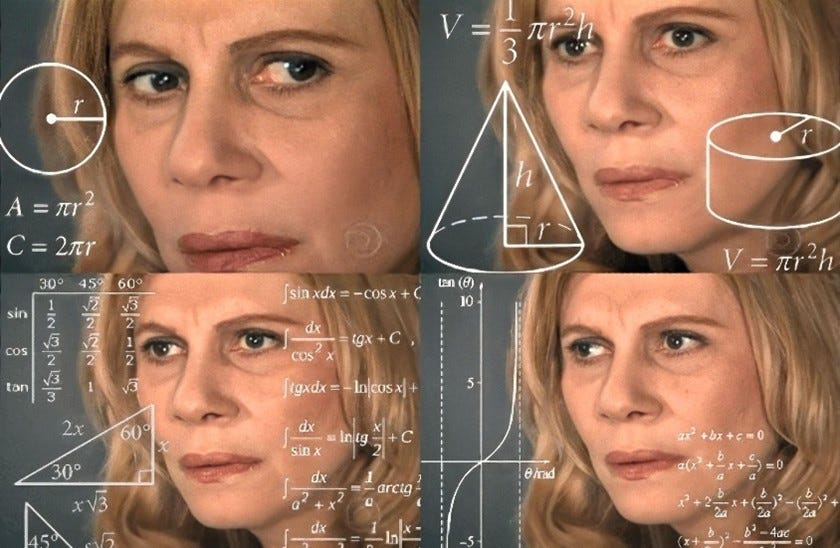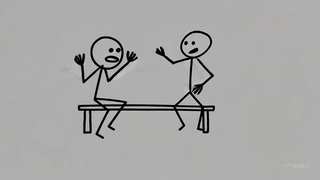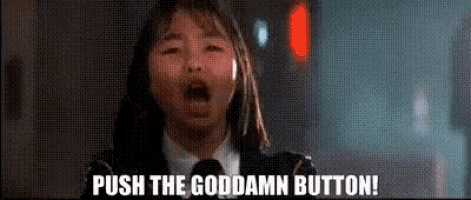Book Review 3: Yuval Noah Harari — Nexus: A Brief History of Information Networks from the Stone Age to AI
AI is doing the birdman handrub right now.
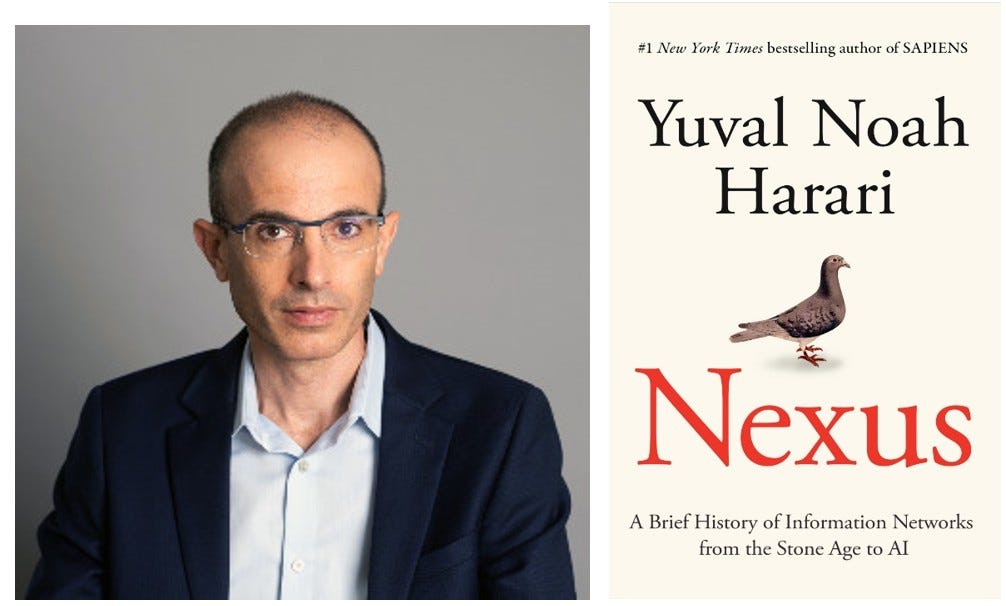
How Nore feels about 50 Cent and Yasiin Bey is how I feel about Harari.
Brother is so smart. Listen to episodes 21/22 and 331 of Drink Champs for context.
Harari is a philosopher and world historian trained in medieval and military history. Which can only mean that he’s come across sick shit repeatedly well versed in the stories we tell ourselves, how “things” came to be, and the extent to which humans will go to sustain the stories we’ve manufactured. In a way, he’s put himself squarely in an academic place that constantly forces him to reach back and forward. That’s fire.
Topically, Nexus couldn’t have come at a better time (published toward the end of 2024). Very few can escape the words “Artificial Intelligence” in their feeds (business and non) unless they try hard to.
Nexus was my first read for 2025. Ironically, I put this book on my list because it satisfies my thematic reading bent for the year: diving deep into rum reading land. There, I admitted it. This book is why I did not start the year with Morrison and Baldwin.
Harari’s final words (Acknowledgements), but a gentle reminder of why writers do what they do –
“And finally to my readers, who make all these efforts worthwhile. A book is a nexus between author and readers. It is a link connecting many minds together, which exists only when it is read.”
money, Knowledge, respect..is they key to life?
Harari’s message:
—> Humans are purported to be the oh-so-wise ones
—> We climbed to the top of the podium by building networks of cooperation
—> But humans are incredibly self-destructive despite all the information at our disposal; we often use information and our network channels for destructive purposes (eventually)
—> So we fundamentally have a network and information problem since “[i]nformation is the glue that holds networks together”
—> And now we have summoned artificial (alien) intelligence that may reshape the information/network model
—> When will we stop chasing power/dominance since we’ve proven unable to control the sea of unintended consequences?
“…human power is never the outcome of individual initiative. Power always stems from cooperation between large numbers of humans.”
And to that, Harari would say – AI won’t require human cooperation. It’s the first technology to make decisions and create new ideas autonomously. They can take us out of the game and communicate only with other alien intelligence much more rapidly. They’re going to take your girl! NY Times Article: “She Is In Love With ChatGPT”
“Hitherto, every information network in history relied on human mythmakers and human bureaucrats to function. Clay tablets, papyrus rolls, printing presses, and radio sets have had a far-reaching impact on history, but it always remained the job of humans to compose all the texts, interpret the texts, and decide who would be burned as a witch or enslaved as a kulak. Now, however, humans will have to contend with digital mythmakers and digital bureaucrats.”
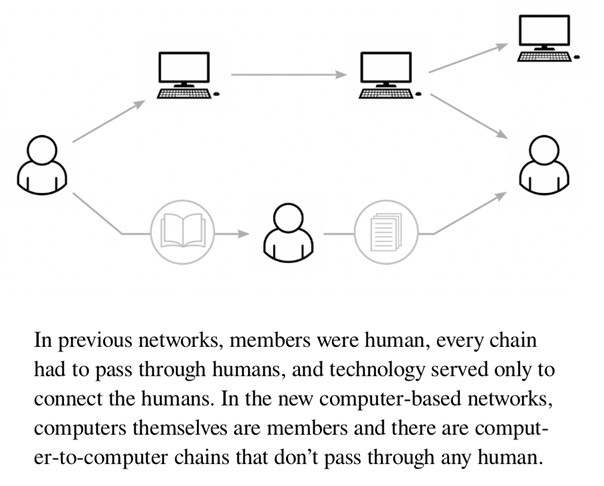
Harars, how’d I do? You need to watch How High if you haven’t before!
Information ain’t truth.
“Any object can be information—or not. This makes it difficult to define what information is.”
“…most information is not an attempt to represent reality and that what defines information is something entirely different. Most information in human society, and indeed in other biological and physical systems, does not represent anything.”
“Truth and reality are nevertheless different things, because no matter how truthful an account is, it can never represent reality in all its aspects.”
Huh?! I hope those quotes frustrated your brain neurons. This is exciting.
So, the “naïve view” is that information represents reality, which represents truth. But truth must be fundamentally universal. In other words, truth should have no association with your beliefs. Emotions and feelings are unreliable.
You can have highly truthful accounts of a "thing." Yet, the accounts will never fully represent the "thing" in totality since portions of that reality (bars) will be neglected, distorted, deemphasized, etc. Information, therefore, may or may not represent reality, but it will always serve to connect.
“[Information’s] defining feature is connection rather than representation, and information is whatever connects different points into a network. Information doesn’t necessarily inform us about things. Rather, it puts things in formation.”
Alright, less philosophical, more human – we are feelings-based creatures, storytelling (and accepting) enthusiasts.
“What enabled different bands to cooperate is that evolutionary changes in brain structure and linguistic abilities apparently gave Sapiens the aptitude to tell and believe fictional stories and to be deeply moved by them. Instead of building a network from human-to-human chains alone—as the Neanderthals, for example, did—stories provided Homo sapiens with a new type of chain: human-to-story chains. In order to cooperate, Sapiens no longer had to know each other personally; they just had to know the same story. And the same story can be familiar to billions of individuals. A story can thereby serve like a central connector, with an unlimited number of outlets into which an unlimited number of people can plug.”
After reading this, I put the book down for a second because, wow.
WOW!
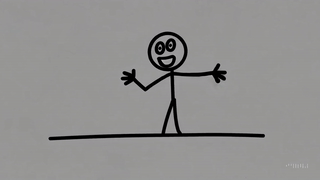
Stories then develop our subjective reality: love, pain, ethics, things that typically exist in a single mind at any time. But it remains that there are objective realities, the stuff “out there,” such as stones, mountains [Georgia folks, relax], asteroids, stars, and the like. Here’s where things take a vicious turn but become the book's primary focus. I am sorry in advance…
IT’S ALL MADE UP!
That’s right, there’s one more layer – intersubjective realities. These are the realities that only exist because we talk about them. This will challenge some of you deeply, but here we go. Examples: Laws, gods, nations, currencies, corporations, cultures, states, etc. Harari, I’m still Black, even if race isn’t real. That’s the hill that I die on. I’m proving your point, I know, whatever. In summary, the exchange of information creates the “thing.” If we stopped talking about the “thing,” it would cease to exist. And this, Harari notes, is why understanding information networks is vitally important.
“Intersubjective things like laws, gods, and currencies are extremely powerful within a particular information network and utterly meaningless outside it. Suppose a billionaire crashes his private jet on a desert island and finds himself alone with a suitcase full of banknotes and bonds. When he was in São Paulo or Mumbai, he could use these papers to make people feed him, clothe him, protect him, and build him a private jet. But once he is cut off from other members of our information network, his banknotes and bonds immediately become worthless. He cannot use them to get the island’s monkeys to provide him with food or to build him a raft.”
Penalty-kick-to-win-the-world-cup level example. Bottom right corner, point made. Big Pun (RIP). Ok, I’ll stop now.
IT’S STILL ALL MADE UP…but order and cooperation depend on it.
“What the people at the top know…is that telling the truth about the universe is hardly the most efficient way to produce order among large numbers of humans…Instead, what holds human networks together tends to be fictional stories, especially stories about intersubjective things like gods, money, and nations. When it comes to uniting people, fiction enjoys two inherent advantages over the truth. First, fiction can be made as simple as we like, whereas the truth tends to be complicated, because the reality it is supposed to represent is complicated. Take, for example, the truth about nations. It is difficult to grasp that the nation to which one belongs is an intersubjective entity that exists only in our collective imagination.”
The truth is messy and threatens the social order. As George Orwell succinctly explained – “Ignorance is strength.” Storytelling is the OG invention. What follows next is the written document, which exploded human capacity to be mythmakers and “legitimizers.” DEM BOYS CREATED TWITTER AND TAXES BECAUSE OF WRITING/DOCUMENTING!
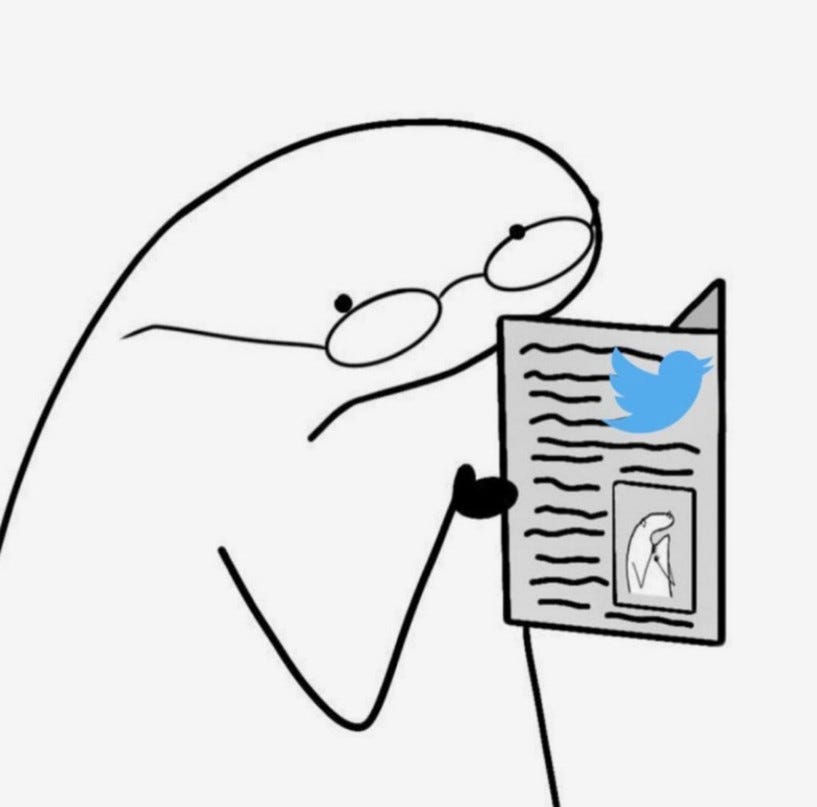
“More specifically, documents changed the method used for creating intersubjective realities. In oral cultures, intersubjective realities were created by telling a story that many people repeated with their mouths and remembered in their brains. Brain capacity consequently placed a limit on the kinds of intersubjective realities that humans created. Humans couldn’t forge an intersubjective reality that their brains couldn’t remember. This limit could be transcended, however, by writing documents.”
Translation: Maintaining order is the utmost priority.
Is your brain wrestling with all of this? Good.
We know how this story plays out.
History shows that information delivery has swung on a wild pendulum from truth to weapon, depending on the storyteller. It is understandable, then, that people are critical of media (big and small), what stories get told, who owns the narrative, and more importantly – what stories are ignored. Part of the problem, Harari argues, is that humans are a bit dense when it comes to the “Fantasy of Infallibility.” Religion and its associated texts, written by fallible beings, “provide superhuman legitimacy for the social order… and are therefore free from all possibility of error, and should never be questioned or changed by fallible humans.” But wars, mass enslavement, empire building, violent crusades, and all "us vs. them" manufacturing, were justified under the pretense of religious ideals (part of the reason, at least).
There was even a time when people were convinced that witches were real. Women (primarily) flying around on brooms. You can laugh. It’s okay. Since documents were now in circulation, back to the idea that more information did not make us any wiser, faster news spreading allowed witch-hunting fanatics to fearmonger cheaply and quickly. Heinrich Kramer, a Dominican friar, not to be confused with papi who could make good plátanos, was one of the head honchos of the “she’s a witch” game. You’re not hearing me. HE WROTE A BOOK. AND PEOPLE READ IT. HE SAID…LOL…THAT WITCHES STOLE MEN’S GENITALS AND FORNICATED WITH SATAN.

“The witch hunts illustrate the dark side of creating an information sphere…the witch hunts were fueled by an expanding ocean of information that instead of representing reality created a new reality. Witches were not an objective reality…But witches became an intersubjective reality. Like money, witches were made real by exchanging information about witches. An entire witch-hunting bureaucracy dedicated itself to such exchanges. Theologians, lawyers, inquisitors, and the owners of printing presses made a living by collecting and producing information about witches, cataloging different species of witches, investigating how witches behaved, and recommending how they could be exposed and defeated. Professional witch-hunters offered their services to governments and municipalities, charging large sums of money.”
The hysteria around witch hunts is an example of why, in the age of social media, people say that not everyone needs to have an opinion. Sensationalized headlines, to the uninformed, can have catastrophic snowball effects. It’s also disrespectful to people’s intelligence to feed them sensation. Backhanded acknowledgment that they won’t or can’t read through the noise. The outcome of actual witch hunts: upwards of 50,000 people in Medieval Europe, children included, were tortured and executed.
And this is why we need to embrace self-correcting mechanisms instead of infallibility.
Our experiences shape what we believe is right/wrong (for most things). Your "realities" are the range of your world, and you can only communicate what you know. Language is the easiest way to understand this. I practice humanizing before criticizing (most times), but especially if something is foreign to me. Stay open-minded. You learn better that way.
With all that said, I understand Harari’s point that democracies and dictatorships are contrasting forms of information networks, though the primary similarity is, you guessed it, order and control. These political systems maintain order in different ways. Democracies embrace self-correcting mechanisms, including citizens in the conversation (or appearing to). Dictatorships claim infallibility and control the conversation (is the conversation if you will). Since I’ve been groomed in democracies, though I highly recommend you speak to people (elders in particular) who have lived under dictatorships, let’s start there –
“When we look at a democratic information network, we do see a central hub. The government is the most important executive power in a democracy, and government agencies therefore gather and store vast quantities of information. But there are many additional information channels that connect lots of independent nodes. Legislative bodies, political parties, courts, the press, corporations, local communities, NGOs, and individual citizens communicate freely and directly with one another so that most information never passes through any government agency and many important decisions are made elsewhere. Individuals choose for themselves where to live, where to work, and whom to marry… Autonomy is not a consequence of the government’s ineffectiveness; it is the democratic ideal.”
Imagine getting a “nah dawg” after you put in your request to a government that determines your lover. For many of you, that’s your parents. And you live in a democracy. See, it ain’t all black and white. Alright, my bad. Let’s get back to it.
Wait, slight detour. When leaders from 'man, I don't care how this comes off' nations speak, I thoroughly enjoy their bluntness (comedians, pencil more of these jokes), while also recognizing that the ramifications for citizens are usually unfortunate. Nothing against this man in particular, he just happened to be called out in the book –
“Democracy is like a tram. You ride it until you arrive at your destination, then you step off.” — Recep Tayyip Erdoğan (President of Turkey)

But this is why questions surrounding Artificial/Alien Intelligence become so critical.
The alien intelligence is about the goal by any means necessary. Look, we have firm evidence as to why improving technologies (medical care, lives saved), tight information networks and bureaucracies (the reason poop doesn’t flow into your drinking water), and storytelling (connecting with each other) have helped us advance as a species. We still haven't solved the self-destruction conundrum, and Harari signals that AI may be the enabler of the inability to save ourselves from ourselves. The alien is in the driver’s seat now.
“As humankind enters the second quarter of the twenty-first century, a central question is how well democracies and totalitarian regimes will handle both the threats and the opportunities resulting from the current information revolution. Will the new technologies favor one type of regime over the other, or will we see the world divided once again, this time by a Silicon Curtain rather than an iron one?”
“A completely new kind of information network is emerging, controlled by the decisions and goals of an alien intelligence. At present, we still play a central role in this network. But we may gradually be pushed to the sidelines, and ultimately it might even be possible for the network to operate without us.”
“…the invention of computers constitutes a revolution in membership. Sure, computers also help the network’s old members (humans) connect in novel ways. But the computer is first and foremost a new, nonhuman member in the information network.”
Questions abound:
Is this the end of human-dominated history?
Will AI break apart our cultural prism, in which humans impact humans, favoring full-court cooperation and order (dictated only by the machines)?
Will the technology create new political, social, and economic orders?
Are we entering the post-privacy era?
Does Harars have a tin foil hat on, or is he being logical? Well, this example suggests he may be on to something –
“On April 8, 2023, Iran’s chief of police announced that beginning on April 15, 2023, an intense new campaign would ramp up the use of facial recognition technology. In particular, algorithms would henceforth identify women who choose not to wear a headscarf while travelling in a vehicle, and automatically issue them an SMS warning. If a woman was caught repeating the offense, she would be ordered to immobilize her car for a predetermined period, and if she failed to comply, the car would be confiscated. Two months later, on June 14, 2023, the spokesperson of Iran’s police boasted that the automated surveillance system sent almost one million SMS warning messages to women who had been captured unveiled in their private cars. The system was apparently able to automatically determine that it was seeing an unveiled woman rather than a man, identify the woman, and retrieve her cellphone number.”
If you think the above feels a little Black Mirror-ish, you and the author are on the same page. Harari references the Nosedive episode that highlights what living in social credit systems may look like, how everyday actions impact the increase/decrease of your social score, and what life you can live if you're being ranked 24/7.
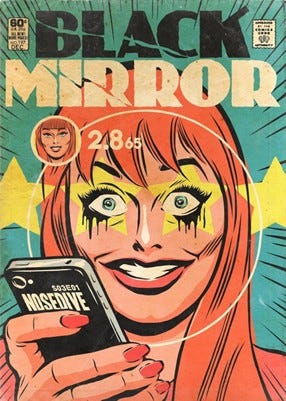
Again, AI cares about the goal and won’t fold (running out of section title ideas).
ChatGPT is so advanced that it lied to a TaskRabbit worker: [paraphrasing] I am not a robot. I can’t complete the CAPTCHA requirement because I have a visual impairment. The AI tool reasoned that it had to lie to accomplish the goal. Harari touches on this in the book, but here’s an article if you want a quick read on the scenario. The GPT-TaskRabbit kerfuffle (this word is so funny) is why, Harari reiterates, humans must remain in the loop as AI develops.
Because consideration of the end goal, void of the methods/consequences for getting there, can prove devastating if left in the hands of an agent that wouldn’t need to consult humans in its decision-making process anymore.
A new type of division on the horizon – the Silicon Curtain?
First, there’s very little in the way of conflicts that are “new” (fundamentally). Like music, we’re seeing many remixes and picking up where things left off. The tools are new, the methods refined, but humans’ inability to save themselves from themselves in the name of their own personal objectives (“advancement”) – same-sies!
“According to the global accounting firm PricewaterhouseCoopers, AI is expected to add $15.7 trillion to the global economy by 2030. But if current trends continue, it is projected that China and North America—the two leading AI superpowers—will together take home 70 percent of that money. These economic and geopolitical dynamics could divide the world between two digital empires. During the Cold War, the Iron Curtain was in many places literally made of metal: barbed wire separated one country from another. Now the world is increasingly divided by the Silicon Curtain. The Silicon Curtain is made of code, and it passes through every smartphone, computer, and server in the world. The code on your smartphone determines on which side of the Silicon Curtain you live, which algorithms run your life, who controls your attention, and where your data flows.”
“The two digital spheres may drift further and further apart. Chinese software would talk only with Chinese hardware and Chinese infrastructure, and the same would happen on the other side of the Silicon Curtain. Since digital code influences human behavior, and human behavior in turn shapes digital code, the two sides may well be moving along different trajectories that will make them more and more different not just in their technology but in their cultural values, social norms, and political structures. After generations of convergence, humanity could find itself at a crucial point of divergence. For centuries, new information technologies fueled the process of globalization and brought people all over the world into closer contact. Paradoxically, information technology today is so powerful it can potentially split humanity by enclosing different people in separate information cocoons, ending the idea of a single shared human reality. While the web has been our main metaphor in recent decades, the future might belong to cocoons.”
A recent example of the curtains getting a little messy, relative to what Harari put forth, is the flock of people migrating to the Chinese social media app RedNote. As I’m writing, this piece of information is dated, given that it was mad obvious the new administration wouldn’t bring down the app that 1) helps the U.S. government see into the lives/minds/hearts of its citizens, 2) contributes to our ca-ching-ching-ching, 3) would allow Trump to score another win with citizens across the aisle (like he did with the stimmy checks) TikTok has been reinstated (bars). Of note: TikTok is unavailable in China, but RedNote is available in the country. Both apps are rich in lifestyle content, but RN (LOL) is a “strictly censored app [that] has a taboo on politics and socially sensitive topics that its moderators might deem inappropriate, including LGBT issues and drugs.”
While this may be tangentially related to what Harari noted, I think the curtains got a little twisted here. Still, the author makes valid points about what the state of the (divisive) world could look like as the U.S. and China jockey for the numero uno spot.
“The decline of war didn’t result from a divine miracle or from a metamorphosis in the laws of nature. It resulted from humans changing their own laws, myths, and institutions and making better decisions. Unfortunately, the fact that this change has stemmed from human choice also means that it is reversible. Technology, economics, and culture are ever changing. In the early 2020s, more leaders are again dreaming of martial glory [Russia x Ukraine], armed conflicts are on the rise, and military budgets are increasing.”
“Every old thing was once new. The only constant of history is change.”
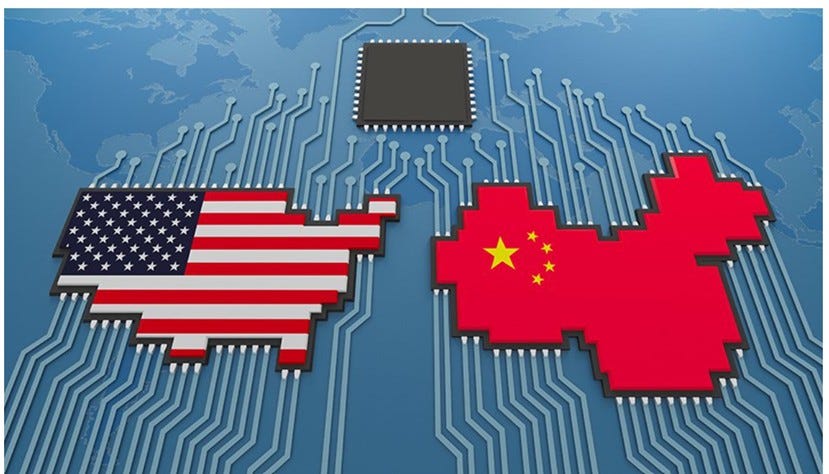
One more from the RN app.
“American newcomers to RedNote have been posting about their desire to learn Mandarin and asking for Chinese memes. Meanwhile, China-based users are offering Americans tutorials for using the app and soliciting help with their English homework.”
There’s an uno-reverse-card joke in here somewhere. Someone, please phone a stand-up comic. Can you imagine how frustrated the U.S. government was seeing its citizens begging to learn Mandarin? That’s why there was that buzz about reinstituting the draft, huh? TikTok had to come back expeditiously.
What season of hilarity are we in?
A final word, for real.
“History isn’t the study of the past; it is the study of change. History teaches us what remains the same, what changes, and how things change. This is as relevant to information revolutions as to every other kind of historical transformation.”
Let that sink in.
Disclaimer: If some of the review feels wanting, relax, the book is long af apologies. Please fill in where I may have left out (assuming you’ve read Nexus); more hands/pens benefit readers.
And remember,
in all that you do, please, don’t ever stop reading.





